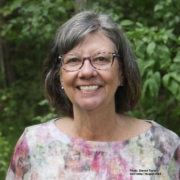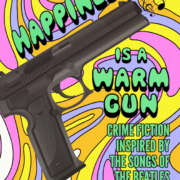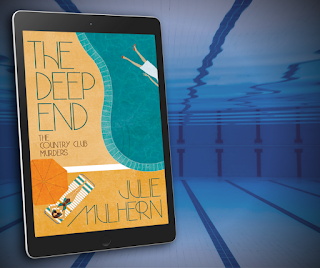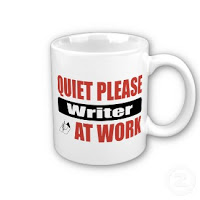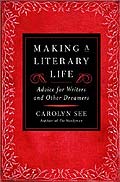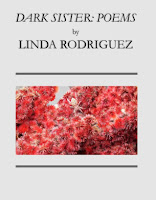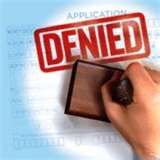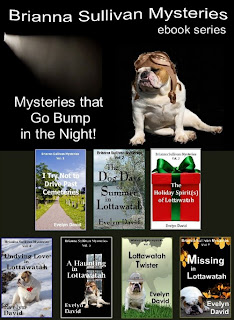Tag Archive for: publishing
I Am A Published Author by Dru Ann Love
/in Anthologies, Author Life, Dru Ann Love, Drus Book Musings/by Dru Ann Love This is a short post while I recover from my recent surgery. It’s hard to sit at a desk when you can’t bend your knee or if you do “ouch.”
This is a short post while I recover from my recent surgery. It’s hard to sit at a desk when you can’t bend your knee or if you do “ouch.”
July 2023 Summertime in Southern Colorado By Juliana Cha Cha de Cochiti Pueblo, New Mexico de la cruz Aragón Fatula
/in Uncategorized/by Juliana Aragon FatulaDear Reader,
This is the story that I want to write and read. Something no one else can write. Only I can tell this story. It is my story about two talented Chicanas from Pueblo, Colorado who solve crimes and mysteries and run Emma’s Recovery House for women and children. L.A. and Eva Mondragón Private Investigators and social activists in Denver, Colorado honoring their mother by helping the unfortunate. There but for the grace of God, go I.
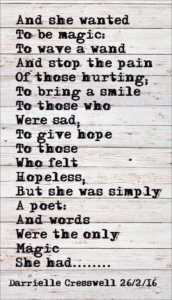
![]()
Summertime and living is easy. The tide has finally rolled out and we are beginning to enjoy the peace, quiet, and solitude of retirement and our golden years.
I’ve been working since I was twelve years old. My first job, babysitting, taught me how to take care of a baby, my nephew.
My second job, I was fifteen and pregnant, taught me how to clean and scrub toilets at the beauty shop owned by the only Latina beautician in town, Dee. She gave me my first office cleaning job.
Eventually, I gained employment scrubbing the toilets of the local doctors, lawyers, judges, and politicians. Their houses never seemed dirty to me, but I dusted, swept, vacuumed, mopped, and cleaned windows and bathrooms.
My mother cleaned houses, but she also ironed and washed the clothes of her employers and they gave my mom their children’s hand-me-downs and toys. Even though we were poor, we dressed nice and had great toys, bikes, sleds, skateboards, Suzy Easy Bake Oven…
The rich loved my mom’s cooking. She made the best tamales in the county. They gave her their children’s possessions as they outgrew them. We in turn gave our clothes and toys to the white family down the block because they were even poorer than we were in our family.
Mom and Dad taught us never to make fun of those poor white kids who wore our hand-me-downs. Our parents taught us respect, morals, ethics, honesty, kindness, and generosity, and gave us unconditional love. (Don’t know how I turned out semi-normal).
I worked through the summer of 1972 and by the fall, my friends had returned to high school sophomore year. I left my small hometown in Southern Colorado and moved to San Francisco, California.
The culture shock was minimal but the homesickness was maximum. I missed my family and my friends but not my hometown. I was thrilled to be living in the Bay area and enjoyed my fifteenth birthday, my boyfriend, and my baby boy. I had no clue what I was doing.
My California romance ended, and I returned to Colorado and my parents. I returned to my hometown high school and found my next job at the communication monopoly known then as Mountain Bell.
At sixteen I was the first person of color in my hometown to work at a major corporation like Mt. Bell as a telephone operator. Thanks to the Equal Employment Opportunity Act and Family Planning I was able to rent an apartment, buy a car, and support myself and my son and get healthcare for us. Mt. Bell also hired the first male telephone operator in the county. He happened to be gay but was closeted in our small, town of 99.99% Caucasian in 1973.
I celebrated my eighteenth birthday in the ICU in the hospital in my hometown after nearly bleeding to death in the ER restroom. I had an ectopic pregnancy that burst when I was packing to move to Denver. I lost my left ovary and fallopian tube and lived to tell the story.
I transferred to Denver and left my hometown. I was a customer service representative for Mt. Bell in their downtown Denver high-rise. I met people from all walks of life and became part of a diverse community. I loved living in Denver. I transferred several times to better-paying jobs and climbed the corporate ladder. I learned job skills and networked with coworkers from around the country.
I never gave up on my dream of graduating from college. I made my goal of a degree in English and Creative Writing a priority in my life. Eventually, I earned several degrees and my teaching certificate.
When my Dad died, I returned to my hometown to be near my mother in her golden years. I was hired by the school district and taught in the same building I had attended in my freshman year of high school.
I had come full circle, but I wasn’t satisfied. I wanted to push myself. I challenged myself to write and get published. The year I graduated, Conundrum Press published my first book of poetry, Crazy Chicana in Catholic City, a year later my second book of poetry, Red Canyon Falling on Churches, was published.
I graduated with honors from CSU Pueblo in 2008 at 50 years old, published two poetry books and a chapbook, The Road I Ride Bleeds, and decided to challenge myself to write my first novel.
I’ve always loved the mystery genre. I naturally chose to write a love story mystery. I don’t want to write a good novel. I want to write a great novel. I joined several national writing groups and networked with writers, editors, journalists, and publishers. I read books on writing by the masters: Stephen King, Ernest Hemmingway, Linda Rodriquez, etc.
I set my self-imposed deadline of July 15, 2023, to finish revising my m.s. I’ve been writing this novel off and on for five years. Stopping when life gets too crazy and starting again when I figure out how to survive the global pandemic, my son’s drug addiction, his heart attack, his stroke, his brain damage, and his death at fifty.
In December of 2022, my husband and I both had covid and weeks of illness. Then came the death threat to my husband by my nephew and the subpoena to testify against him in court.
One day I shook off all of the pain and grief and went back to work on my novel and worked harder than I ever had before. I realized with my son’s death at only fifty years of age that I could die at any minute from anything and needed to complete my book, publish my book, and then I could die, but not until then. I added to my bucket list: publish a great mystery love story and spread my message of diversity, inclusivity, peace, love, and understanding and do it with a sense of humor and dun dun dun, mystery.
Today I’m chilling. I’m waiting for feedback from my editor and her critique for revisions and submitting my novel. I truly have hopes of submitting to all the Latinx/Chicanx publishers. There are few but they do exist, and I want to start with them first. It also is important to me to submit with an LGBTQ publisher because many of my characters are lesbian, gay, transgender, bisexual, and queer and have important messages to teach about being marginalized.
Many of the women characters in my novel living at Emma’s Recovery House are recovering drug addicts, alcoholics, inmates, human trafficking victims, runaways, abused, confused, and used women looking for a new life, a new start, a fresh chance to survive in a world gone crazy. They have been judged, mistreated, abandoned, beaten, and ignored as worthy human beings with something to contribute to society. I want to tell their stories of wicked warrior women with survivor attitudes and joyful spirits.
When One Thing Leads to Another by Judy Penz Sheluk
/in How to Write, Marketing, Publishing/by Judy Penz Sheluk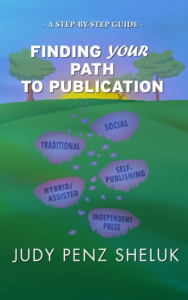 I’m delighted to welcome Judy Penz Sheluk as my guest to talk about her new release: Finding Your Path to Publication: A Step-by-Step Guide. Because I’ve loved her two fiction series: The Glass Dolphin mysteries and the Marketville mysteries, I know this will be a valuable non-fiction tool for writers. See you next month! —Debra H. Goldstein
I’m delighted to welcome Judy Penz Sheluk as my guest to talk about her new release: Finding Your Path to Publication: A Step-by-Step Guide. Because I’ve loved her two fiction series: The Glass Dolphin mysteries and the Marketville mysteries, I know this will be a valuable non-fiction tool for writers. See you next month! —Debra H. Goldstein
When One Thing Leads to Another by Judy Penz Sheluk
I’m new at this. Oh, I don’t mean I’m new to blogging. I’ve been writing a blog for my own website for years, and I was a Stiletto Gang member for a time until life got in the way (thankfully, they invite me back every now and again, for which I am grateful).
I don’t even mean that I’m new to shameless self-promotion, though it never seems to get any easier (I can always hear my mother saying, “never forget where you came from,” “where” in our world being a very humble place).
What I do mean is that I’m not used to blogging about a how-to book. It’s not like I can be cutesy and write this from a character’s point of view or get all authorly and talk about the narrative arc. Hmmm…maybe I can talk about how one thing led to another.
Okay, that’s settled. It all started when I led a NaNoWriMo debriefing in November 2021 at my then-local library. I’ve attempted NaNoWriMo a few times but have never yet completed the 50,000-words-in-a-month challenge. The librarian thought that made me more accessible. I’d tried and “failed,” and yet I was a published author.
What I learned from that event was that the attendees were more interested in how-to get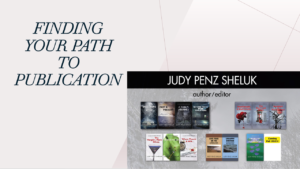 published and publishing options than whether I (or anyone else) had succeeded at NaNoWriMo. That led to the librarian asking if I might be willing to prepare a presentation on the topic. I remembered how much I’d learned since signing my first book contract in 2014, and not all those lessons came easy. In fact, some of them were downright painful.
published and publishing options than whether I (or anyone else) had succeeded at NaNoWriMo. That led to the librarian asking if I might be willing to prepare a presentation on the topic. I remembered how much I’d learned since signing my first book contract in 2014, and not all those lessons came easy. In fact, some of them were downright painful.
The presentation—Paving Your Path to Publication—had record attendance, with more questions than time to respond. It also gave me an idea. What if I wrote a book based on it? I’m a total pantser when it comes to writing mystery fiction, but here, at least, I’d have an outline.
After months of research (I knew virtually nothing about social publishing platforms like Wattpad or Hybrid/Assisted publishers, and was surprised at how much I still had to learn about traditional and self-publishing platforms) and vetting every chapter with my front-line editor (also an aspiring author from a very different generation than mine), the result is Finding Your Path to Publication: A Step-by-Step Guide, which released on May 2 in trade paperback, large print, hardcover, and e-book. It’s the sort of book I wish I’d had back when I was starting out, but then again, I wouldn’t be where I am today without experiencing the highs and low of my journey as an author.
After all, one thing almost always leads to another. And I wouldn’t have it any other way.
Readers: Have you experienced “one thing leading to another” in your life? If so, how’d that work out for you?
About Finding Your Path to Publication: The road to publishing is paved with good intentions…and horror stories of authors who had to learn the hard way.
For the emerging author, the publishing world can be overwhelming. You’ve written the book, and you’re ready to share it with the world, but don’t know where to start. Traditional, independent press, hybrid, self-publishing, and online social platforms—all are valid publishing paths. The question is, which one is right for you?
Finding Your Path to Publication is an introduction to an industry that remains a mystery to those on the outside. Learn how each publishing option works, what to expect from the process start to finish, how to identify red flags, and avoid common pitfalls. With statistics, examples, and helpful resources compiled by an industry insider who’s been down a few of these paths, this is your roadmap to decide which path you’d like to explore, and where to begin your author journey.
Available in trade paperback, large print, hardcover, and e-book. Universal buy link: https://books2read.com/FindingYourPathtoPublication
~ ~ ~ ~ ~
A former journalist and magazine editor, Judy Penz Sheluk is the bestselling author of two mystery series: The Glass Dolphin Mysteries and Marketville Mysteries, both of which have been published in multiple languages. Her short crime fiction appears in several collections, including the Superior Shores Anthologies, which she also edited. Judy is a member of the Independent Book Publishers Association, Sisters in Crime, International Thriller Writers, the Short Mystery Fiction Society, and Crime Writers of Canada, where she served on the Board of Directors for five years, the final two as Chair. She lives in Northern Ontario. Find her at www.judypenzsheluk.com.
A Whole Industry Built on Vibes!!
/in Author Life/by Linda Rodriguezby Linda Rodriguez
This past week, we have been treated to the spectacle of the heads of of the hugest publishing companies in the United States sitting in a federal courtroom under oath, testifying about the publishing industry. We have heard things that were patently untrue, even if the CEO making the statement is sworn to tell the truth under pain of perjury, things such as, “$100,000 is a relatively small advance anymore”. Cue writers across the land for insane laughter at this preposterous statement.
We have heard things that were quite unbelievable and yet, apparently, true, simply because they were unfavorable to the executives testifying, their publishing company, and the cause for which they are suing. Statements which admit that the current CEO of one huge publisher has totally mismanaged his company (but he still wants the government to allow him to acquire another huge publisher, apparently so that he can mismanage that one as well?), or that even the largest publishers have absolutely no idea which books will sell or how to sell the books they have acquired, or the admission that they give no marketing budget and make no marketing efforts for the vast majority of their books which fall below the $250,000 advance mark.
These court proceedings have been live-tweeted by reporters for several industry publications and others with a strong interest in the industry. Their live tweets have been seized upon by writers across the country, who have been simultaneously horrified and stunned into laughter by some of the incredibly ignorant and inept statements these CEOs have made under oath. As one writer tweeted in all-caps response after a CEO agreed laughingly with the judge that their P&L statements had no validity, “An entire industry run on vibes!!”
Most of us who have been involved in this industry and with the Big Five publishers for any length of time have not been surprised at much of what has come out in this hearing. It tallies with what we have experienced and what we have suspected all along. We have had few
doubts about the mendacity and ignorance of the people in ultimate power at these houses (as opposed to their hard-working and wonderful editorial staffs). How could we, especially after seeing and experiencing events such as the purge by one of the houses in this case of all of its
cozy-mystery writers, no matter how successful, and of their knowledgeable cozy-mystery editors, only to sign a new set of inexperienced cozy-mystery writers for vastly smaller advances than normal? (Perhaps this irrational act played a part in the fact that this company had a
disappointing record of sales for the past few years and its CEO had to publicly admit to mismanaging it?)
But even veteran writers have been stunned by the sheer extent of the lies, the ignorance, and the deliberate mismanagement this week’s testimony has displayed publicly. These men are being paid multi-millions of dollars per year, yet are clearly incompetent in their roles. At least, if the goal is what the company publicly states it is–to acquire and publish books successfully and profitably.
On social media, writers across the country are moaning, laughing, and despairing as they read about each day’s testimony. I find myself wondering how many writers, who would otherwise have had a career with traditional publishers, will turn to self-publishing in disgust at the practices so callously outlined, most of which exploit, abuse, and humiliate the very writers upon whom this industry rests. This trial has only begun. We have weeks more of this testimony ahead of us. Will publishing ever be quite the same afterward?
If I knew then…
/in Uncategorized/by Julie Mulhernbefore being published.
I was beyond excited, so full of happiness my feet didn’t touch the ground for
days.
contract, but I was so new to publishing, I didn’t understand the myriad
ramifications of my name on that signature line.
products are books. And, if I want readers to find my books, I must market
them. Like most new authors, I believed my publisher should take that role (my
husband still believes publishers should do that).
of confetti, the universe responded with a pffft.
Still, my publisher was pleased and told me, “Keep writing.” The second release
was worse than the first. A bigger pffft,
less confetti, fewer sales. My publisher told me, “Second books seldom do as
well as debuts.”
my expectations.
I have a theory about that.
books—thrillers for the holidays, beach books for summer, romances for
Valentine’s Day.
Ellison Russell, revisit (or visit) the 1970s, and fall in love with her
extended family, they’ll keep reading.
the first book in the series) surpassed 100,000 books sold.
love engaging with readers. All things I expected when I took the first steps
down this path. Knowing more about Facebook ads and AMS than most marketing
executives? Let’s call that a bonus. Or a curse. Tomato-tomahto.
I-wish-I-knew-then-what-I-know-now blog. Lord only knows what mistakes I’ll
make, but at least I’ll make them doing something I love.
Advice on Publishing Your Novel
/in Uncategorized/by Linda Rodriguezreceive emails all the time asking me how the emailers can get their
own novels published. Usually, they know just about nothing of the
business of publishing, which always surprises me. If you took a year
or so to write a book that you hoped to publish and sell, wouldn’t
you owe it to yourself to research and learn something about the
business of publishing that you hope to join?
try to answer with a detailed listing of things they can do to
educate themselves about the business and to begin to connect with
the professional literary community. I have a feeling that some of
our blog friends and followers out there may be in the same
situation, so I’ve decided to write this blog post. Here’s my
resource guide to publishing a novel. It won’t get you published,
but it will give you a good foundation in the business of
publishing/being a professional novelist and get you started in the
right direction.
a novel to a major publisher today can be very difficult without an
agent. Most of the New York trade publishers won’t look at novels
unless they’re represented by an agent. Smaller specialized
presses, literary presses, and university presses will take unagented
queries during their open submissions period, if they have one. Often
they can be the best bet for a first novel that’s not necessarily a
commercial novel. Poets
& Writers has
a database of small, literary, and university presses.
of these won’t do novels, so you’ll have to sort through them.
Here’s a list of 16 small presses that do novels.
can also do an internet search for small presses that specialize in
your particular genre of novel, if you write in one of the genres.
agents, I would suggest that you check the website of the Association
of Author’s Representatives.
is the professional association of reputable agents. It’s very easy
to get involved with folks who call themselves agents and are really
running scams to part authors from their money. Members of AAR have
sworn not to do this stuff and are kicked out if they do, so you can
trust them.
good site to educate yourself and protect yourself from scammers is
Writer Beware.
is a site provided by the SFWA and MWA as a service for all authors,
science fiction or not.
the first thing you want to do is to get current copies of Poets &
Writers, Writer’s Digest, and The Writer magazines.
These magazines often talk about which publishers are looking for
what kinds of books at the moment. P&W focuses more on the
academic and literary writer, while WD focuses more on the
commercial or freelance writer. If your library has them, also read
back issues of P&W, The Writer, and WD.
You’ll learn a lot about the business that way.
for professional authors groups to join. There are groups for
children’s writers, mystery writers, romance writers, sf/fantasy
writers, etc. These groups are usually tremendously helpful in
learning the publishing business and making useful contacts. If there
is a chapter of a professional writer’s organization near you and
it’s not your kind of writing, it can still be useful to you in
learning the business. I once belonged to the local chapter of RWA,
Romance Writers of America, though I didn’t write romance. I
learned about agents, what editors want, what is and is not
acceptable behavior in the publishing world, what are and are not
good contracts, and tons of other things that became useful to me.
Now, we have a chapter of Sisters in Crime here, and I’m active in
it, but that time in RWA laid a very good foundation for me. The same
goes for SFWA or any of the others. The purposes of these
organizations are to help their members with the business of
publishing and being a professional—and that’s very similar
across the boards.
book I always recommend to students and aspiring writers is Carolyn
See’s Making
a Literary Life.
I’ve written about this book on Writers Who Kill before.
the best book for looking at how to be a professional writer and work
on getting published, how to get established within the literary
community, how to make a career as a writer without living in NYC,
and much else.
I were you, friend with a book manuscript under your arm, I’d start
with these resources. I’d also go to every writer’s
appearance/reading/event that occurs in your town if it’s a small
one or a good selection if you live in a big city with an active
literary community. Buy a book, if you can. Introduce yourself to the
writer. Follow up with emails or mailed notes talking about what you
liked about their reading or book—not asking for help
with your own. Friend writers on Facebook, and follow them on
Twitter. Don’t spam them about your own book. What you’re doing
is building relationships within the community of writers. These are
the folks who can answer questions for you or later (if you’ve
built a good, real relationship) give blurbs that will help your book
sell. Basically, my advice is to educate yourself about publishing
and become a contributing member of the community. Getting a novel
published is a long, hard haul, so arm yourself with information and
allies.
best single piece of advice I could give, however, is this—make
sure you write a good novel. Get professional feedback and revise,
revise, revise until it shines before you ever try to send it out. I
suspect that a certain number of folks who are looking for a
publisher for their novel have never had anyone professional look at
it and haven’t done much with revision. Writing is an art and a
profession. Learn about publishing, the business, while you learn
about writing, the art and craft. Editors and agents have long
memories. Don’t stick out in theirs from sending an amateurish
manuscript out. Make sure that what you send is the very best it can
be submitted in the most knowledgeable and professional way you can.
of luck!
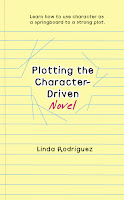 Linda Rodriguez’s Dark Sister: Poems
Linda Rodriguez’s Dark Sister: Poemshas just been released. Plotting the Character-Driven Novel,
based on her popular workshop, and The World Is One Place: Native
American Poets Visit the Middle East, an anthology she co-edited,
were published to high praise in 2017. Every Family Doubt,
her fourth mystery novel featuring Cherokee campus police chief,
Skeet Bannion, and Revising the Character-Driven Novel will
be published in 2019. Her three earlier Skeet novels—Every
Hidden Fear, Every Broken Trust, and Every Last
Secret—and her books of
poetry—Skin Hunger
and Heart’s Migration—have
received critical recognition and awards, such as St. Martin’s
Press/Malice Domestic Best First Novel, International
Latino Book Award, Latina Book Club Best Book of 2014, Midwest Voices
& Visions, Elvira Cordero Cisneros Award, Thorpe Menn Award, and
Ragdale and Macondo fellowships. Her short story, “The Good
Neighbor,” published in the anthology, Kansas City Noir, has
been optioned for film.
Indigenous Writer’s Caucus, past president of Border Crimes chapter
of Sisters in Crime, founding board member of Latino Writers
Collective and The Writers Place, and a member of International
Thriller Writers, Wordcraft Circle of Native American Writers and
Storytellers, and Kansas City Cherokee Community. Visit her at
http://lindarodriguezwrites.blogspot.com
Chart Watching
/in Uncategorized/by Bethany Mainespart of a month feeling that it related to my efforts in self-publishing. Having
the ability to have live updated sales results is not really as fun as it
sounds. Or at least it’s not good for ongoing peace of mind. The world of
publishing has changed. Now every author must do the work that previously was
performed by publishing houses – namely, marketing. And the secret thing about
marketing that every marketing professional would prefer you not know, is that
you can never quite tell what’s going to work. So with every fresh effort, I
flip back to the chart to see if there’s rain or not. Some sprinkles, some
gushers, some droughts – and that is the way of the writing life now. But there’s more to that song, and the rest
of the lyrics are more applicable to the real world right now than they are to any personal
concerns I have about my writing and sales.
song isn’t much of a metaphor; it’s what we’re all doing. We’re literally out
of firefighters and the ones that are on the line are working days in a row
with little to no sleep. Firefighters from Australian and New Zealand arrived on
Monday to help and we couldn’t be happier to see them. We literally need all
the help we can get.
and still the sky is frequently a hazy yellow from smoke. Yesterday, I could
look at the sun directly because there was so much smog that it was only a
burning circle of orange in the sky.
mountains, but this fire has turned us all into obsessed weather forecast
watchers. My facebook feed is filled with pictures of rain – a virtual rain
dance for our home and our friends. Weather forecasting has taken a giant step
forward due to computing speeds and modeling, but Washington is still one of
the toughest places to forecast. All the data in the world can’t entirely
predict if rain is going to fall. We all watch the chart, but so far, heavy
cloud, no rain.
a donating person, you can view this article from local reporter Jesse Jones, for where to send donations. Washington thanks you.
Mae Mysteries, Tales from the City of
Destiny and An Unseen Current.
You can also view the Carrie Mae youtube video
or catch up with her on Twitter and Facebook.
It’s Alllllivvvvvve!!
/in Uncategorized/by The Stiletto Gangby Bethany Maines
It’s here! It’s here! Tales From the City of Destiny is
finally available for purchase!
After what seems like months of writing, proofing, and review it
actually exists as a really, real book. Does this feeling ever get old? I don’t think so. Last year, this
project was just an idea, barely an idea even, and here it is as a physical
object that anyone can hold.
this phenomenon every time something I’ve dreamed up comes off the press. From
invitations to signs everything looks slightly different in real life than when
I began the creation process. Some things look better, some things are disappointing and some
things are neither bad or good – just different. And while every single time
it’s still cool that something I dreamed up is now a real physical object, the
dissonance between idea and reality no longer surprises me.
books. Somehow the process of
turning a word document that barely contains my invisible friends into an
actual book is… amazing. And I hope all of you will purchase your own copy and
enjoy reading about my invisible friends as much as I have enjoyed writing
about them.
the Carrie Mae Mystery series and Tales from the City of Destiny. You can also view the Carrie Mae youtube
video or catch up with her on Twitter and
Facebook.
Who Defines Me?
/in Uncategorized/by The Stiletto GangBy Evelyn David
I was talking to a friend whose oldest child is in the midst of the college admissions/decision process. Needless to say, it’s very different from when I was a senior in high school. Granted that was a minimum of a million years ago, but if you weren’t going to the state university, you applied to three or four schools in the fall, and come April, you got your letters: fat envelopes signaled acceptance; thin ones were polite no’s. It was probably the only time when being fat was a good thing.
By the time my oldest was ready for college, things had ramped up. SAT prep was a given. Students applied to many more schools. But a dozen years later, when my youngest was in the college mode, there had been a sea change. Among other things, the whole application process was now online. No stamps were involved on either end. College admissions had become a multi-million dollar industry, with private college admissions counselors charging as much as $40,000 for their services.
But here’s what hasn’t changed, even from when I applied to school.
Rejection still hurts. Whether it’s from your first-choice college or it’s from a publisher who has decided that your mystery doesn’t fit their needs – it’s painful to the core to be told that you don’t make the grade. There are usually lots of reasons for the rejection that have absolutely nothing to do with you or your work. But when you’re in the midst of it, when you’ve gotten the real or virtual “thin” envelope, it’s very personal and the wound can run deep.
Most writers are full of self-doubt. Being rejected merely confirms your worst fears about your talent. You can sell 100,000 books through Kindle Direct Publishing, make more money off your self-published mysteries than you ever did through traditional publishing houses – and you’re still looking for outside confirmation that you’re a “real writer.”
Or is that just the insecure me talking?
I can remember when my oldest got deferred from his first-choice college (the decision on his application was put off until the regular admissions cycle). He was hurt; I was devastated. But when I pulled myself together and thought it through, I was able to tell him what I need to remember myself.
Don’t let someone else define you. Whether it’s an admissions officer, an editor, or a reviewer, you can’t let their decisions, be it reasoned or capricious, affect your sense of self-worth. You are who you are, valuable and worthy, regardless of whether they decide to let you in “the club.”
I wish for each of you fat envelopes that say yes to your dreams. But if a thin envelope is delivered, don’t stop believing or pursuing your passion. You may have to take a different route to achieve it, but your worth is never in question.
Marian aka the Northern, often insecure half of Evelyn David
Brianna Sullivan Mysteries – e-book series
I Try Not to Drive Past Cemeteries- Kindle – Nook – Smashwords
The Dog Days of Summer in Lottawatah- Kindle – Nook – Smashwords
The Holiday Spirit(s) of Lottawatah- Kindle – Nook – Smashwords
Undying Love in Lottawatah- Kindle – Nook – Smashwords
A Haunting in Lottawatah – Kindle – Nook – Smashwords
Lottawatah Twister – Kindle – Nook – Smashwords
Missing in Lottawatah – Kindle – Nook – Smashwords
Sullivan Investigations Mystery – e-book series
Murder Off the Books Kindle – Nook – Smashwords
Murder Takes the Cake Kindle – Nook – Smashwords
Riley Come Home (short story)- Kindle – Nook – Smashwords
Moonlighting at the Mall (short story) – Kindle – Nook – Smashwords
Romances
Love Lessons – Kindle – Nook – Smashwords

